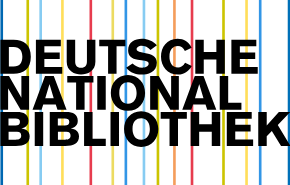ASSESSING THE CURRENT STATE OF THE FORMATION OF ADOLESCENTS’ MORAL AND ETHICAL IMMUNITY IN THE CONTEXT OF THE IMPACT OF SOCIAL NETWORKS ON GLOBAL EDUCATION
DOI:
https://doi.org/10.55640/Keywords:
adolescents, moral-ethical immunity, social networks, global education, psychological factors, pedagogical strategies, online behavior, digital literacy, value formation.Abstract
This article examines the current state of the formation of adolescents’ moral and ethical immunity in the context of the influence of social networks on global education. The rapid expansion of social networks and their integration into the educational process pose significant challenges to the moral and ethical development of adolescent students. Drawing on a review of contemporary research and educational practices, this study explores the psychological, pedagogical, and social factors that contribute to adolescents’ resistance to harmful content and negative behavioral influences online. The article also outlines practical strategies for educators, parents, and policymakers to support the development of a robust moral-ethical foundation among students. By fostering critical thinking skills, empathy, and responsible online behavior, this research emphasizes the need for a collaborative approach to ensuring students’ moral and ethical well-being in the global information environment.
References
1.Alimov, R. (2019). Axborot muhiti sharoitida o‘smirlarda axloqiy immunitetni rivojlantirishning pedagogik jihatlari. Toshkent: Fan va texnologiyalar.
2.Jabborova, N. (2021). Moral and ethical education of adolescents in digital environments. Uzbek Journal of Pedagogy, 12(3), 45–54.
3.Karimova, S. (2017). Forming moral responsibility among students under the influence of globalized communication tools. Central Asian Journal of Educational Studies, 5(2), 89–98.
4.Khaydarov, B. (2018). Youth resilience and ethical decision-making in online spaces. Tashkent Pedagogical University Journal, 10(1), 33–41.
5.Rahmonova, D. (2020). The role of social networks in shaping adolescents’ moral-ethical immunity. Scientific Review of Uzbekistan, 8(4), 66–75.
6.Siddikov, M. (2023). Developing students’ critical thinking skills to counter misinformation on social networks. Journal of Educational Technologies, 9(1), 102–115.
7.Turaeva, L. (2019). Psychological aspects of adolescents’ moral immunity formation in a globalized information society. Uzbek Psychological Journal, 7(2), 14–22.
8.Walker, T. (2020). Ethical challenges for youth in global social networks. Educational Media International, 57(3), 189–203.
9.Williams, R. & Patel, S. (2018). Digital literacy and moral resilience among secondary school students. International Journal of Information Literacy, 12(2), 25–37.
10.Zokirov, A. (2016). Ta’lim muhitida axloqiy tarbiya va global informatsion makon muammolari. Pedagogika fanlari ilmiy jurnali, 3(1), 70–79.
Downloads
Published
Issue
Section
License

This work is licensed under a Creative Commons Attribution 4.0 International License.
Authors retain the copyright of their manuscripts, and all Open Access articles are disseminated under the terms of the Creative Commons Attribution License 4.0 (CC-BY), which licenses unrestricted use, distribution, and reproduction in any medium, provided that the original work is appropriately cited. The use of general descriptive names, trade names, trademarks, and so forth in this publication, even if not specifically identified, does not imply that these names are not protected by the relevant laws and regulations.







